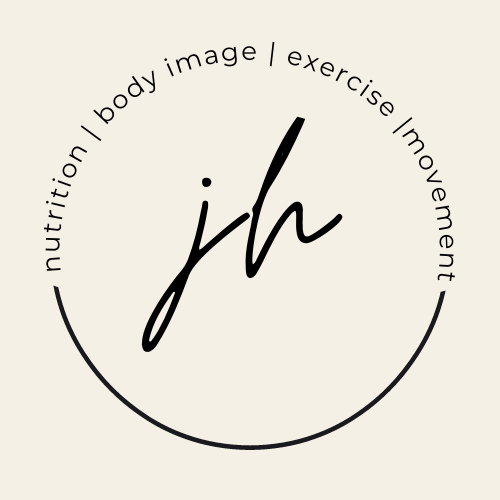No, You Can't Have a Cheat Day
As a dietitian who supports a non-diet, weight neutral approach to health, I often find that my “honor your hunger” and “eat intuitively” message gets lost in translation in our diet-obsessed culture. When I say, “you have unconditional permission to eat”, people often hear…
“restrict your food intake… but eat whatever you want on the weekend”, or
“restrict your food intake… but eat whatever you want on special occasions”, or
“eat whatever you want… but exercise excessively”, or
“eat whatever you want… but then ‘get back on track’ and restrict again”, or
“eat whatever you want… in order to lose weight”
We have become so committed to the restrict/binge cycle, that we cannot fathom what life would look like if we truly didn’t have food rules. That’s why when I hear the term “cheat day” I literally want to scream. Cheating implies there are rules, and you broke them. Cheating implies guilt. Cheating implies shame. Cheating implies the impending doom of the food police.
Cheating sounds naughty. When you cheat on a test, you’re a bad student. When you cheat on your spouse, your a bad partner. And when you cheat on your diet, you’re just plain ol’ “bad”. But cheating is never just about breaking the rules. There’s always something else bubbling up underneath the desire to rebel.
Perhaps you cheat on your test because you fear failure. Maybe you cheat on your spouse because you want to feel wanted. And you cheat on your diet because you’re really f*cking hungry. In every instance, cheating is followed up by shame, guilt, stress, anxiety, and diminished self esteem.
But the problem with cheating is that it’s never about the cheating itself. It’s about what made you cheat in the first place. In the case of your diet, it’s restriction. Giving yourself unconditional permission to eat means that there is no cheating, because there is nothing to cheat on. You can’t break the rules, because there are no rules. You can’t fall off the wagon, because there is no wagon.
Now I can’t speak much more on academic or romantic cheating, so I’ll let you glean your own conclusions on that analogy. But as far as diet cheating goes... until we can fully embrace this idea of unconditional permission to eat, we are always going to suffer the physical and emotional consequences of cheating.
Start slow… with one food. Can you enjoy a plate of pasta with a loved one, in the presence of other satisfying and nourishing foods? Can you savor an ice cream cone at your favorite shop on these last warm days of summer? How can you start making your “bad” foods, “good”? Let me know in the comments below, and let’s make ALL foods, GOOD foods.
